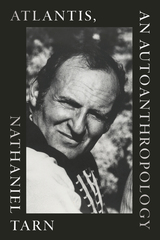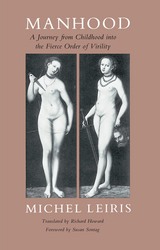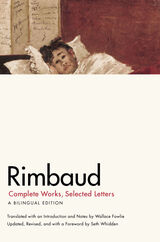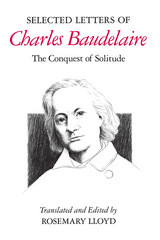6 books about Poets, French

Atlantis, an Autoanthropology
Nathaniel Tarn
Duke University Press, 2022
Over the course of his long career, Nathaniel Tarn has been a poet, anthropologist, and book editor, while his travels have taken him into every continent. Born in France, raised in England, and earning a Ph.D. from the University of Chicago, he knew André Breton, Salvador Dalí, Marcel Duchamp, Margot Fonteyn, Charles Olson, Claude Lévi-Strauss, and many more of the twentieth century’s major artists and intellectuals. In Atlantis, an Autoanthropology he writes that he has "never (yet) been able to experience the sensation of being only one person.” Throughout this literary memoir and autoethnography, Tarn captures this multiplicity and reaches for the uncertainties of a life lived in a dizzying array of times, cultures, and environments. Drawing on his practice as an anthropologist, he takes himself as a subject of study, examining the shape of a life devoted to the study of the whole of human culture. Atlantis, an Autoanthropology prompts us to consider our own multiple selves and the mysteries contained within.
[more]

Manhood
A Journey from Childhood into the Fierce Order of Virility
Michel Leiris
University of Chicago Press, 1992
"Not only one of the frankest of autobiographies, but also a brilliantly written book, Leiris' Manhood mingles memories, philosophic reflections, sexual revelation, meditations on bullfighting, and the life-long progress of self-discovery."—Washington Post Book World
"Leiris writes to appall, and thereby to receive from his readers the gift of a strong emotion—the emotion needed to defend himself against the indignation and disgust he expects to arouse in his readers."—Susan Sontag, New York Review of Books
"Leiris writes to appall, and thereby to receive from his readers the gift of a strong emotion—the emotion needed to defend himself against the indignation and disgust he expects to arouse in his readers."—Susan Sontag, New York Review of Books
[more]

Rimbaud
Complete Works, Selected Letters, a Bilingual Edition
Jean Nicholas Arthur Rimbaud
University of Chicago Press, 2005
The enfant terrible of French letters, Jean-Nicholas-Arthur Rimbaud (1854-91) was a defiant and precocious youth who wrote some of the most remarkable prose and poetry of the nineteenth century, all before leaving the world of verse by the age of twenty-one. More than a century after his death, the young rebel-poet continues to appeal to modern readers as much for his turbulent life as for his poetry; his stormy affair with fellow poet Paul Verlaine and his nomadic adventures in eastern Africa are as iconic as his hallucinatory poems and symbolist prose.
The first translation of the poet's complete works when it was published in 1966, Rimbaud: Complete Works, Selected Letters introduced a new generation of Americans to the alienated genius—among them the Doors's lead singer Jim Morrison, who wrote to translator Wallace Fowlie to thank him for rendering the poems accessible to those who "don't read French that easily." Forty years later, the book remains the only side-by-side bilingual edition of Rimbaud's complete poetic works.
Thoroughly revising Fowlie's edition, Seth Whidden has made changes on virtually every page, correcting errors, reordering poems, adding previously omitted versions of poems and some letters, and updating the text to reflect current scholarship; left in place are Fowlie's literal and respectful translations of Rimbaud's complex and nontraditional verse. Whidden also provides a foreword that considers the heritage of Fowlie's edition and adds a bibliography that acknowledges relevant books that have appeared since the original publication. On its fortieth anniversary, Rimbaud remains the most authoritative—and now, completely up-to-date—edition of the young master's entire poetic ouvre.
The first translation of the poet's complete works when it was published in 1966, Rimbaud: Complete Works, Selected Letters introduced a new generation of Americans to the alienated genius—among them the Doors's lead singer Jim Morrison, who wrote to translator Wallace Fowlie to thank him for rendering the poems accessible to those who "don't read French that easily." Forty years later, the book remains the only side-by-side bilingual edition of Rimbaud's complete poetic works.
Thoroughly revising Fowlie's edition, Seth Whidden has made changes on virtually every page, correcting errors, reordering poems, adding previously omitted versions of poems and some letters, and updating the text to reflect current scholarship; left in place are Fowlie's literal and respectful translations of Rimbaud's complex and nontraditional verse. Whidden also provides a foreword that considers the heritage of Fowlie's edition and adds a bibliography that acknowledges relevant books that have appeared since the original publication. On its fortieth anniversary, Rimbaud remains the most authoritative—and now, completely up-to-date—edition of the young master's entire poetic ouvre.
[more]

Selected Letters of Charles Baudelaire
The Conquest of Solitude
Charles Baudelaire
University of Chicago Press, 1986
Undeniably one of the modern world's greatest literary figures, Charles Baudelaire (1821-67) left behind a correspondence documenting in intimate detail a life as intense in its extremes as his poetry. This extensive selection of his letters—many translated for the first time into English—depicts a poet divided between despair and elation, thoughts of suicide and intimations of immortality; a man who could write to his mother, "We're obviously destined to love one another, to end our lives as honestly and gently as possible," and say in the next sentence, "I'm convinced that one of us will kill the other"; who courted and then suffered the controversy provoked by his masterpiece, Les Fleurs du mal; who struggled throughout his life with syphilis contracted in his youth, near-intolerable financial restrictions imposed by his stepfather, and conflicting feelings of failure and revolt dating from his school days.
Writing to family, friends, and lovers, Baudelaire reveals the incidents and passions that went into his poetry. In letters to editors, idols, and peers—Hugo, Flaubert, Vigny, Wagner, Cladel, among others—he elucidates the methods and concerns of his own art and criticism and comments tellingly on the arts and politics of his day. In all, ranging from childhood to days shortly before his death, these letters comprise a complex and moving portrait of the quintessential poet and his time.
Writing to family, friends, and lovers, Baudelaire reveals the incidents and passions that went into his poetry. In letters to editors, idols, and peers—Hugo, Flaubert, Vigny, Wagner, Cladel, among others—he elucidates the methods and concerns of his own art and criticism and comments tellingly on the arts and politics of his day. In all, ranging from childhood to days shortly before his death, these letters comprise a complex and moving portrait of the quintessential poet and his time.
[more]

Selected Letters of Stéphane Mallarmé
Stéphane Mallarmé
University of Chicago Press, 1988
It is the reading world's good fortune that Stéphane Mallarmé's letters survived, allowing later generations an intimate look at the inner life of one of Europe's most important poets. Mallarmé (1842-98), often called the father of the Symbolists, has had an immense influence on the development of modern European poetry. It was his ambition to create a poetry pure of quotidian reality—autonomous, concentrated, linguistically inventive. His correspondence documents the evolution of this aim, the crafting of a poetics out of a life inescapably "real" in its pains and charms.
[more]

Somebody Else
Arthur Rimbaud in Africa 1880-91
Charles Nicholl
University of Chicago Press, 1999
At the age of twenty-five, Arthur Rimbaud—the infamous author of A Season in Hell, the pioneer of modernism, the lover and destroyer of Verlaine, the "hoodlum poet" celebrated a century later by Bob Dylan and Jim Morrison—turned his back on poetry, France, and fame, for a life of wandering in East Africa.
In this compelling biography, Charles Nicholl pieces together the shadowy story of Rimbaud's life as a trader, explorer, and gunrunner in Africa. Following his fascinating journey, Nicholl shows how Rimbaud lived out that mysterious pronouncement of his teenage years: "Je est un autre"—I is somebody else.
"Rimbaud's fear of stasis never left him. 'I should like to wander over the face of the whole world,' he told his sister, Isobelle, 'then perhaps I'd find a place that would please me a little.' The tragedy of Rimbaud's later life, superbly chronicled by Nicholl, is that he never really did."—London Guardian
"Nicholl has excavated a mosaic of semi-legendary anecdotes to show that they were an essential part of the poet's journey to become 'somebody else.' Not quite biography, not quite travel book, in the end Somebody Else transcends both genres."—Sara Wheeler, Daily Telegraph
"At the end of Somebody Else Rimbaud is more interesting and more various than before: he is not less mysterious, but he is more real."—Susannah Clapp, Observer Review
In this compelling biography, Charles Nicholl pieces together the shadowy story of Rimbaud's life as a trader, explorer, and gunrunner in Africa. Following his fascinating journey, Nicholl shows how Rimbaud lived out that mysterious pronouncement of his teenage years: "Je est un autre"—I is somebody else.
"Rimbaud's fear of stasis never left him. 'I should like to wander over the face of the whole world,' he told his sister, Isobelle, 'then perhaps I'd find a place that would please me a little.' The tragedy of Rimbaud's later life, superbly chronicled by Nicholl, is that he never really did."—London Guardian
"Nicholl has excavated a mosaic of semi-legendary anecdotes to show that they were an essential part of the poet's journey to become 'somebody else.' Not quite biography, not quite travel book, in the end Somebody Else transcends both genres."—Sara Wheeler, Daily Telegraph
"At the end of Somebody Else Rimbaud is more interesting and more various than before: he is not less mysterious, but he is more real."—Susannah Clapp, Observer Review
[more]
READERS
Browse our collection.
PUBLISHERS
See BiblioVault's publisher services.
STUDENT SERVICES
Files for college accessibility offices.
UChicago Accessibility Resources
home | accessibility | search | about | contact us
BiblioVault ® 2001 - 2024
The University of Chicago Press









